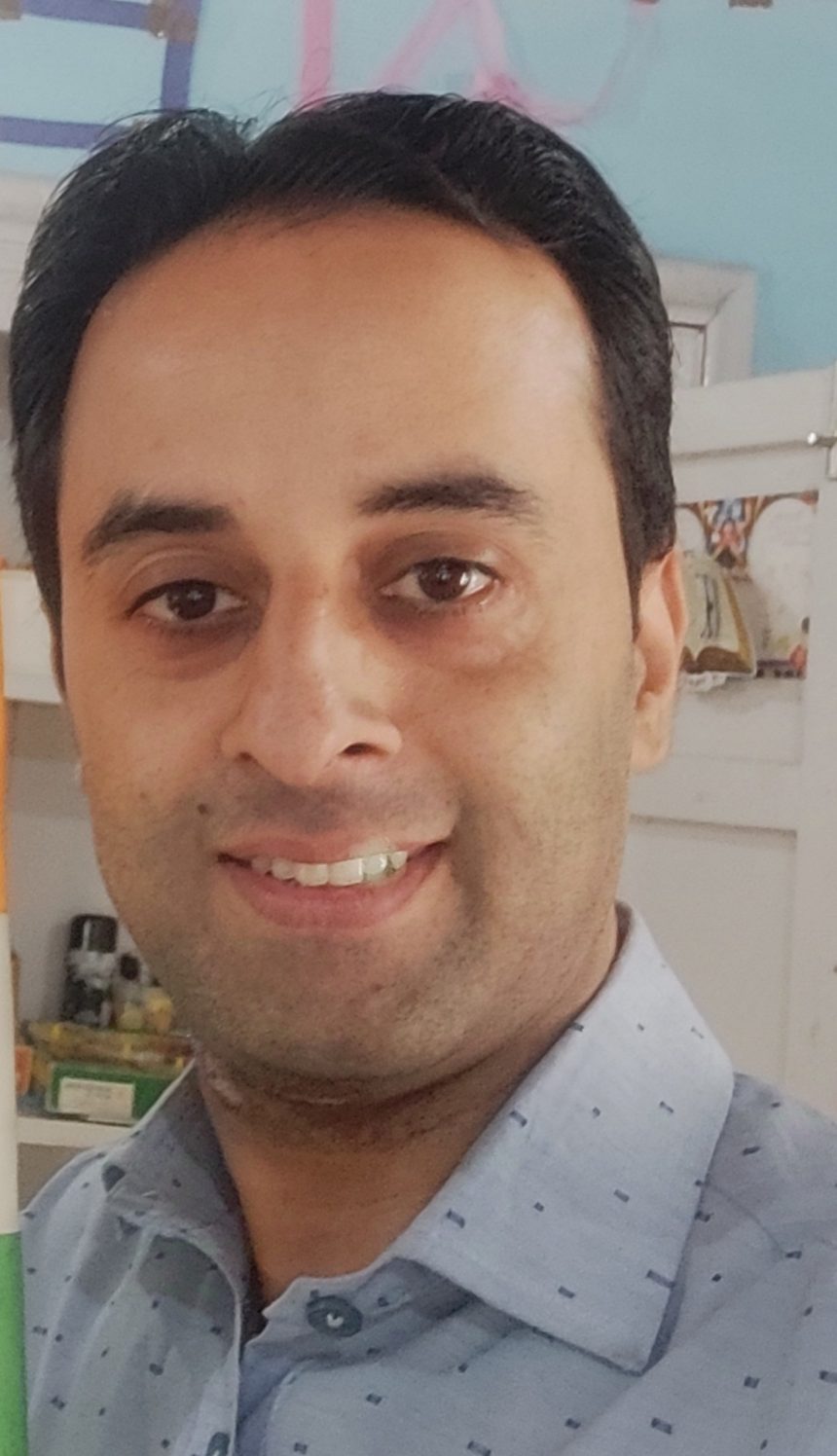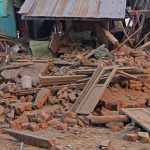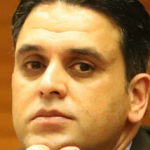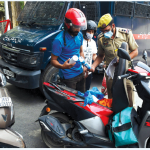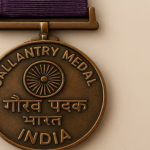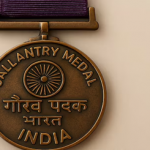WOUNDED PARADISE
Pahalgam, located in Kashmir, is a world-renowned tourist resort known for its serene landscapes, waterfalls, snow-capped mountains, and the quiet rustle of pine trees. Nestled in the heart of the valley, Pahalgam symbolizes peace and natural beauty, attracting tourists from all over the world. But all of that was shattered in a matter of minutes, a paradise turned into a nightmare on the day of the Pahalgam Massacre. In a brutal and unthinkable act of terrorism, 26 tourists and several locals lost their lives, while many others were left injured. The incident left the people of Kashmir and the rest of India deeply scarred, both physically and emotionally.
Suddenly, the peaceful Kashmir Valley was plunged into panic. What began like any other day in the Baisaran Valley of Pahalgam was quickly jolted into chaos. The echo of gunfire rang through the tranquil hills, shattering the silence and the sense of safety that had long defined the region. Panic spread like wildfire as tourists, shopkeepers, children, and local families scrambled for cover, while unknown assailants unleashed a wave of violence unlike anything the town had ever witnessed. In the horrifying aftermath, 26 tourists and 2 local residents were confirmed dead, with many more tourists injured. Within hours, Pahalgam, once a postcard-perfect retreat, had transformed into a scene of terror and grief.
What made the tragedy even more heartbreaking was its devastating timing just when the tourist season was at its peak. Spring had begun to breathe new life into the Kashmir Valley. After enduring years of conflict, curfews, and uncertainty, the region was finally beginning to show signs of peace. Following the abrogation of Article 370, Kashmir had started to experience a fragile yet promising sense of stability. For the first time in years, there was a shift in the air, one filled with cautious optimism. Young people were dreaming again, business owners were investing in their futures, and local leaders were rallying communities around development, culture, and the revival of tourism.
Hotels that had remained shuttered for seasons were opening their doors once more. The streets of Pahalgam, once quiet and subdued, were gradually becoming lively with the hum of conversation, the aroma of local cuisine, and the chatter of excited tourists. Markets bustled with activity, local artisans displayed their crafts proudly, and families began to believe that peace was not just a hope, but a reality within reach. Then, in a single moment of violence, all of that was stolen. The massacre not only took lives but also shattered a delicate dream the dream of a better, brighter Kashmir.
For a region that depends so heavily on tourism, the attack wasn’t merely a loss of lives it struck at the very heart of Kashmir’s way of life and its identity. Kashmiris have long been recognized for their unparalleled hospitality, kindness, and the warm welcome they extend to visitors from all over the world. This horrific event not only shattered that image but also cast a dark shadow on the spirit of the people.
In response, people across the entire valley came together to observe a black day of mourning all business, schools, colleges and offices closed. They united in shared grief, yet displayed an incredible sense of strength and resilience. It wasn’t just an attack on tourists it felt like an assault on the very essence of Kashmiri culture and the collective soul of its people. The sense of loss was profound, as the tragedy resonated throughout the region, impacting not only those directly affected but also every Kashmiri, near and far.
After the massacre, fear spread like wildfire across the region. Thousands of tourists fled, leaving the once-bustling towns empty and silent. Hotel bookings were abruptly canceled, travel plans were abandoned, and the vibrant streets of Pahalgam, which had once been filled with life, became eerily quiet overnight. The impact on the economy was swift and devastating. Families that had long depended on tourism to make a living found themselves in a dire situation, their livelihoods uncertain. For the people of Kashmir, this tragedy was not just a national calamity it was deeply personal, felt in every home, every family, and every heart.
Yet, even in the face of such pain and loss, the people of Kashmir demonstrated incredible resilience. They stood united, refusing to let fear or grief divide them. In the face of adversity, they exhibited strength, kindness, and an unshakeable love for their homeland. As they mourned the lives lost and faced yet another dark chapter in their history, they sent a powerful message to the world, No act of violence, no matter how brutal, could take away their hope. They would not be deterred from their pursuit of peace, nor would they allow this tragedy to define their future. Instead, they remained steadfast in their commitment to rebuild, heal, and move forward, together.
In the Pahalgam attack, every Kashmiri bled with those tourists who lost their loved ones. We stood united in grief, as if the pain had pierced every heart in the valley. We know that our mourning and sympathies can never reverse the loss or ease the unbearable void left behind but we hope they offer a sliver of comfort, a reminder that no one grieves alone. Our sorrow is shared, and so is our strength. In these dark times, we extend not just our condolences, but our unwavering solidarity, holding each other up as we begin the long journey toward healing and peace.
All across Kashmir different political parties, Politicians, local businessmen, transporters, and young people stepped forward to offer full support to the stranded tourists in the aftermath of the Pahalgam tragedy. In an extraordinary display of humanity and unity, the people of Kashmir opened their hearts and homes to those in need. They distributed free food, arranged safe and comfortable accommodations, and even provided free transport to help the tourists return to their destinations or reach safer areas. Many individuals went door to door, personally checking on visitors, offering comfort, and ensuring that no one felt abandoned or alone during the crisis and trauma.
The response from the people of Kashmir was nothing short of remarkable. Many tourists, deeply touched by the love and care extended to them during such a dark and terrifying time were overwhelmed with emotion some were even moved to tears. Despite the immense pain and trauma the Kashmiris themselves were enduring from the loss and shock of the attack, they chose to respond with boundless kindness, compassion, and solidarity.
It was a powerful reminder to the world that, even in the face of unspeakable terror, the light of humanity can still shine brightly. Their actions stood as a testament to the strength of the human spirit and the unbreakable bond that ties communities together, even in the most difficult of times.
The toll of the Pahalgam massacre was truly devastating. Families were torn apart, with 28 precious lives including both tourists and locals tragically lost. Countless survivors were left with deep emotional scars that may never fully heal. Among the victims were not only travelers who had come seeking peace but also two local ponywallas, horse rider who worked tirelessly to earn a daily living by guiding tourists through the scenic valleys. These hardworking men were the sole breadwinners for their families, and their sudden loss has left their loved ones in a state of shock and financial despair. For their families, this tragedy did not just take away a life it shattered their future.
In the aftermath of the attack, the injured were swiftly rushed to medical facilities, including the GMC Anantnag Hospital and nearby Army hospitals. Doctors, nurses, and paramedics worked tirelessly, day and night, to provide urgent care to the wounded. Local volunteers also came forward in the face of the crisis, offering blood and assisting in any way possible, showing the community’s incredible resilience and solidarity during such a dark time.
The people of Kashmir were deeply shaken by the incident. A wave of sorrow, anger, and disbelief spread across the valley. From Srinagar to Anantnag, from shopkeepers to students, everyone was disturbed by the brutality of the attack on tourists. It felt personal as though an assault on their guests was an assault on their very identity and culture. Kashmiris, who take immense pride in their hospitality and warmth, were heartbroken that such violence occurred on their soil.
In the midst of this crisis, however, the community’s unity and compassion shone through. Despite their pain, the people of Kashmir came together to support the injured, comfort the grieving, and protect those still in fear. Their actions were a true reflection of the spirit of the valley resilient, kind-hearted, and strong, even in the darkest of times.
In the days following the massacre, grief hung heavy in the air. Candlelight vigils were held in the town centers. Religious leaders from all faiths came together in solidarity, preaching peace, resilience, and unity, offering hope and strength to a community shaken but not broken.
Tourism is slowly returning. Though cautious, travelers are beginning to trickle back, drawn by both the beauty of Pahalgam and the strength of its people. Locals greet them with warmth and open hearts, perhaps even more determined now to protect what remains of their paradise.
The Pahalgam Massacre is not merely a local tragedy it is a stark, painful reminder of how fragile peace truly is and how swiftly it can be shattered. Yet, it is also a story of extraordinary resilience, unwavering compassion, and unyielding hope.
Pahalgam may be scarred, but it is far from broken. Its people refuse to be defined by fear or pain. They are choosing to rebuild not just their homes, but their very future, brick by brick, heart by heart. In that bold choice, in their defiance of despair, lies the true healing of paradise. It is in their strength and unity that the spirit of Pahalgam and rest of Kashmir will rise again, brighter and more determined than ever before.
No doubt, the Pahalgam massacre was a devastating incident that left deep scars on Kashmir and rest of India. However, there is hope that, with time, these wounds will heal. As the region gradually recovers, there is optimism that tourists from around the world will return, bringing life back to the valley. The tragedy has tested the resilience of the Kashmiri people, but it has also shown their unwavering strength and unity.
Kashmir’s businesses and tourism operators, who depend on visitors for their livelihoods, have faced a challenging period. But the spirit of the valley remains strong. The people of Kashmir are determined to rebuild, and with the return of tourists, they will once again thrive.
In the wake of the horrific Pahalgam attack, what Kashmir needs most is not blame games or political point-scoring but unity, compassion, and unwavering support from every corner of India. The paradise on earth has been wounded, and its healing demands a collective national effort rooted in humanity, not headlines.
People across the country must rise above divisions and stand shoulder to shoulder with Kashmiris, who have endured both unimaginable pain and years of struggle. Instead of politicizing tragedy, this is the time to rebuild trust between communities, between regions, and between people. For it to recover, the world must see Kashmir not just as a conflict zone, but as a land of peace, resilience, and beauty. Tourists will return only when they believe in the safety, stability, and spirit of the valley.
Kashmir, often referred to as “Paradise on Earth,” has seen dark days, but the future holds brighter prospects. As peace slowly restores and the valley’s natural beauty continues to captivate travelers, Kashmir is poised for a hopeful resurgence. The scars of the pahalgam tragedy will never fully disappear, but the spirit of Kashmir its resilience, warmth, and hospitality will guide it back to the vibrant, thriving paradise it once was.
(The Author is Sr. Pediatric Rehab Therapist & Social Worker (MSW) Working for Disability & Child Rights. Feedback: [email protected])



